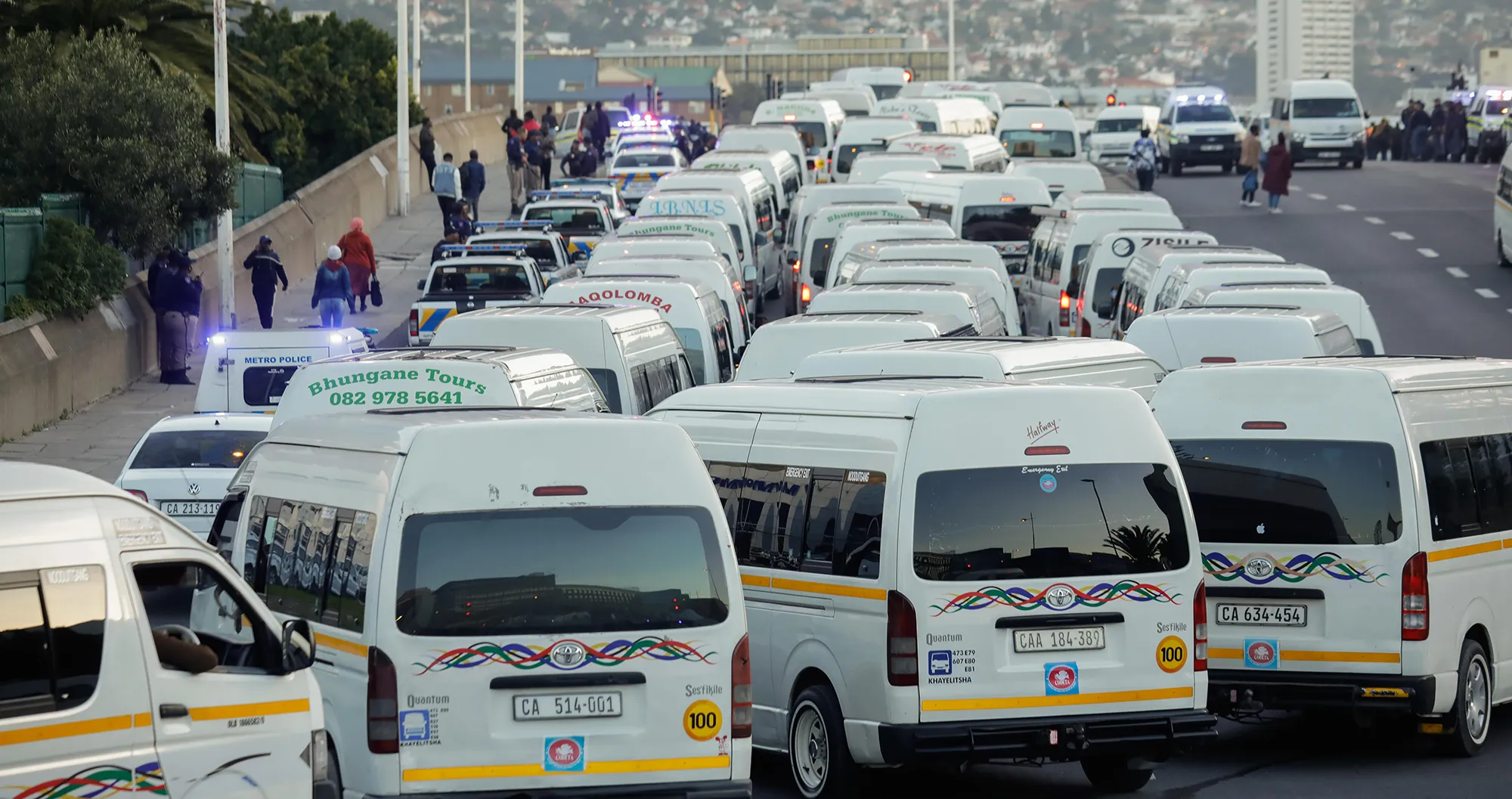
Cape Town, South Africa – In a concerning turn of events, Cape Town police are currently probing an incident of public violence that erupted between rival taxi associations, casting a shadow over the city’s transportation landscape. The clash, centered around a disputed route in Tokai, witnessed vehicular damage but fortunately, no significant injuries were reported.
The primary actors in this altercation are the Cape Amalgamated Taxi Association (CATA) and the Cape Organisation for the Democratic Taxi Association (CODTA). These two associations have long been at odds over territorial rights and operational jurisdictions. However, tensions reached a boiling point when conflicts over routes escalated into a physical confrontation.
This incident comes on the heels of recent negotiations brokered by the taxi task team, aimed at resolving longstanding disputes regarding operating permits and vehicle impoundments. After arduous deliberations spanning five months, a consensus was finally reached, spurred in part by the tragic events of a deadly strike that unfolded last year. The culmination of these talks led to an agreement between the warring factions to cease hostilities and coexist on the same routes.
The implications of this clash extend beyond mere vehicular damage; they underscore deeper issues within South Africa’s transportation sector. Rivalry among taxi associations is not uncommon, often rooted in economic competition and a quest for dominance over lucrative routes. Moreover, such incidents highlight the challenges faced by law enforcement agencies in maintaining order and ensuring public safety amidst internal conflicts within the transport industry.
For commuters and residents in Cape Town, the fallout from these clashes is palpable. Disruptions in transportation services can lead to inconvenience and uncertainty, affecting individuals’ daily routines and economic activities. Additionally, the specter of violence looms large, raising concerns about public security and the need for effective measures to prevent further escalations.
In light of these developments, it is imperative for all stakeholders, including government authorities, taxi associations, and community leaders, to redouble their efforts in finding lasting solutions to underlying grievances. Collaborative initiatives focusing on conflict resolution, regulatory reforms, and enhancing law enforcement capabilities are crucial in mitigating the recurrence of such incidents.
From a broader perspective, the challenges facing Cape Town’s taxi industry reflect larger systemic issues that warrant attention and concerted action. Addressing issues of regulation, licensing, and infrastructure development is essential not only for ensuring the smooth operation of transportation services but also for fostering economic growth and social cohesion in communities across South Africa.
As investigations into the recent clash continue, the spotlight remains on the need for sustainable solutions that promote harmony and stability within the taxi industry. By working together to address root causes and implement effective strategies, stakeholders can pave the way for a safer and more resilient transportation network, benefiting all residents of Cape Town and beyond.
In conclusion, while the recent incident of public violence between rival taxi associations in Cape Town is undoubtedly concerning, it also serves as a wake-up call for collective action and systemic reforms. By harnessing the spirit of cooperation and innovation, South Africa can overcome the challenges plaguing its transportation sector and build a brighter future for all its citizens.
This website uses cookies.